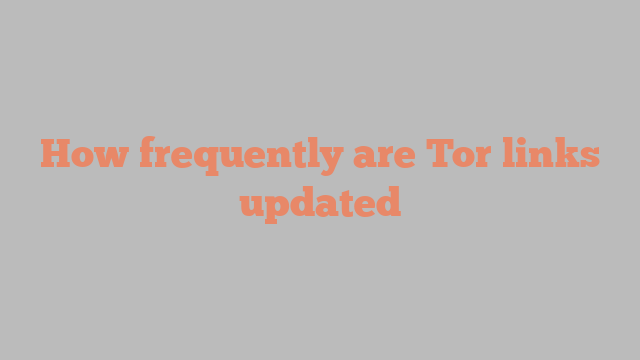Tor links updated
Many people know that the internet is a vast and complicated place, but not everyone knows about a hidden part of it called the dark web. This section is not indexed by search engines, and sites that reside in it use Tor to encrypt connections, keeping both the user and website anonymous. Tor is short for The Onion Router, and it’s the most popular way to browse the dark web.
When you visit a website on the tor links network, your data bounces around the world through more than 6000 volunteer relays to conceal your identity. The relays don’t know who you are or which websites you visit, but they do have metadata such as how long your connection lasts and how much bandwidth you used. To prevent tampering with this information, each relay picks three random servers to send your data to before it reaches the destination server. This system is often compared to the layers of an onion, and it’s this metaphor that gives Tor its name.

Besides being a tool for anonymity, the Tor network also hosts its own websites. Some of them are useful for navigating the surface internet more securely. For example, a website called ZeroBin allows you to share files across the Tor network without worrying about tracking or fingerprinting. Another utility website is Sci-Hub, which allows you to access millions of scientific papers that would otherwise be behind paywalls or unavailable.
How frequently are Tor links updated
Some of the best known websites in the dark web are political or social justice related. One is Imperial Library, a public depository of scanned books that anyone with a Riseup email address can access. Another is the Comic Book Library, which hosts a collection of digital comic books that are too expensive for most people to buy.
Other websites on the Tor network are devoted to providing services to whistleblowers. SecureDrop, for instance, lets whistleblowers submit material to major news outlets without risking their privacy or exposing their identities. Its popularity has led to some top news organizations hosting their own SecureDrop URLs, so they can accept submissions directly from the public.
Other sites in the dark web are focused on providing content that is censored or blocked in repressive countries. Some of them are specialized, such as ProPublica, an investigative journalism platform that was the first major publication to use a.onion domain. Some of these websites have a reputation for being scams or illicit, which makes it important to be careful when clicking on them. The best way to protect yourself is to visit these sites using a VPN.
